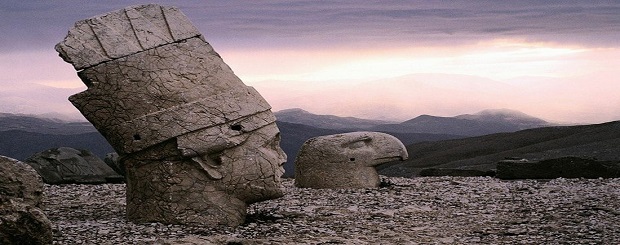
October 20, 2017 / Vigen Avetisyan Interesting
According to some scientists, the word “Aryan” has Armenian origin and includes the root “Ar” and the ending “yan”. The researchers think that “Ar” is a short version of “Ara” or “Arar(ich)” (Արարիչ, Creator).
The worship of the god Ar was widespread among the ancient Armenians, who simply called the deity “Creator”
Many geographical names, such as Ereban-Erevan (Yerevan) and Arivan contain the sacred root Ar, which is also the root of many other words like “ari” (Արի, courageous).
In conversational Armenian, the name “Ara” became a synonym for the word “man”. In informal conversations, Armenian men are still addressing each other using an informal name called “ara”, which is probably based on the name of the God-Creator, Ara.
The ending “yan” in the word “Aryan” means “offspring” and/or denotes relation. The “yan” (which is written in English in two ways, “yan” or “ian”) is preserved in many Indo-European languages and can be found in terms describing nations and even concepts with the same meaning. For example, we see this in the endings of the names of different peoples, such as Norwegians, Romanians, Belgians, and many others.
For words and terms, Armenians also use the ending “yan” to indicate relation and origin. For example, Jefferson(yan/ian) (of Jefferson) America – Jefferson’s America, or Clinton(yan/ian) (of Clinton) fraction – Clinton’s fraction, etc.
Armenian surnames still preserve the archaic ending “yan/ian” (for example, Arayan, which means “from Ara” or “descendant of Ara” or Nahapetyan – “from Nahapet” or “descendant of Nahapet”, etc.).
The word “Armenian” is also just a variant of the word Aryan and means the same in many ways. It also contains the sacred root “Ar” with the addition of the root “men” (which means simply “person” or “people” in proto-Indo-European languages) and “yan”/”ian”.
Thus, if we “decipher” the word “Armenian”, we will get “person (men), the descendant of (ian) Ar (Ar)”. That is, the names Aryan and Armenian were synonymous with a small difference, the word “men”, which did not change the meaning of the word. The Armenian language still has the archaic Armenian word “man(uk)” (infant), which carries the original meaning of “man”.
There are several ancient variations of the word “Armenia” like Armani, Armanum (according to the Akkadian inscriptions of Naram-Sina of the 3rd millennium BC), and Armin (Achaemenid inscription of Darius I of the 6th century BC). The names Armenia, Armania, Armin, and a number of others are just variations.
The Indo-European word “man” is still used in English to refer to people. For example, “Turkmen” is used to refer to the Turkic tribes of Central Asia, the modern inhabitants of Turkmenistan. There are many other examples where “man” is used to refer to different peoples, for example, “Frenchman” – French, “Chinaman” – Chinese, “Englishman“ – British, etc.
Up until the 19th century, the Arevordik or Arordik (sons or children of God Ar) community existed in Armenia. Medieval Armenian sources mention that such communities existed in far corners of Armenia.
Even today, there still is a community of Armenian pagans following the philosophy of the god of the sun Ar. They call themselves Arordik, which means “the sons of the Creator” or “children of the Sun”. Armenians, including Christians, still swear with phrases, which are literally translated as “by the sun of my father/mother/child”.
Author: Gevork Nazaryan, a historian, specialist in the ancient and medieval history of Armenia. He was born in 1976 in Yerevan. Now, he lives and works in Los Angeles. He received Bachelor Degree (Historical Sciences) and Master Degree (Armenian Studies) at the University of California, Los Angeles. Nazaryan is the author of translations of books about Armenian history and wrote many articles on his studies. He also reads public lectures and participates in numerous TV programs on historical topics. Many of his articles on Armenian history and culture can be found on his website www.armenianhighland.com.
allinnet.info/interesting/the-armenian-root-ar-and-ending-yanian-gevork-nazaryan/
